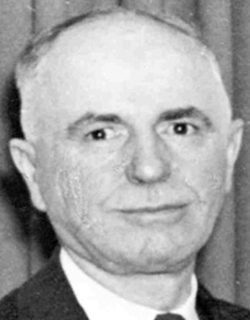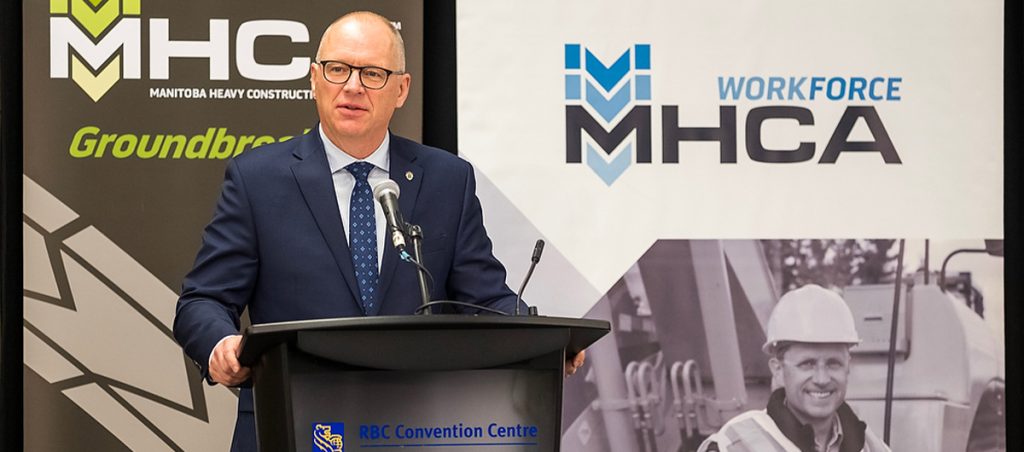75+ years of building Manitoba
The Manitoba Heavy Construction Association was founded in 1943, and joined the Canadian Construction Association (CCA) the same year. The MHCA’s vision then, as it is now, was to help grow Manitoba and Canada’s economy.
To advance national advocacy a western voice was required and in 1943 the MHCA also co-founded the Prairie Roadbuilders Association – later renamed the Western Canada Roadbuilders & Heavy Construction Association (WCR&HCA) – with the Saskatchewan Heavy Construction Association.
Since its founding, the MHCA has been at the forefront, advocating progressive initiatives that helped build Canada’s core infrastructure assets – streets, highways, bridges, structures, flood protection, trade transportation networks, water and waste water systems – through infrastructure investment policies that have contributed to our provincial and national economic growth.
Manitoba has benefited from the fact the MHCA frames its advocacy to be consistent with the public best interest. Those guiding principles have earned the MHCA a reputation as a respected, recognized voice in Manitoba and as a leading industry advocate in Canada.
MHCA Board chairs and presidents have held executive positions on boards of the WCR&HCA and the CCA , giving Manitoba an elevated profile.
Historical highlights
1943
1945

1950s
1968
1973
1983
MHCA champions launch of The Road & Infrastructure Program Canada (TRIP/Canada), the basis of the CCA’s national advocacy initiatives
1989
MHCA launches what is known now as WORKSAFELY®, its respected workplace safety education and training program
1992
Initiated by the MHCA, the provincial government passes legislation dedicating a per-tonne extraction levy on aggregates to fund rehabilitation of spent pits and quarries under the provincial Quarry Rehabilitation Program; the program serves as a model across Canada
1993
MHCA advocacy efforts help spur federal launch of first Canada Infrastructure Works Program
1995

Colleen Munro (Hugh Munro Construction) elected MHCA’s 1st female chair, a first for heavy civil organizations in Canada
CCA’s national advocacy adopts the MHCA-championed triple infrastructure policy approach: national highways; municipal infrastructure; and strategic infrastructure investments
MHCA president is named to serve as president of the Western Canada Roadbuilders Association ; in 1996 the association is renamed Western Canada Roadbuilders & Heavy Construction Association (WCR&HCA)
1997
The heavy construction industry rallies to defend Red River Valley in Flood of the Century; works 24/7 to build 42-kilometer Brunkild Z-Dike
1998
Strategic Infrastructure Reinvestment Policy (SIRP) Task Force, chaired by MHCA president, issues clarion call to address Winnipeg’s municipal investment deficit, the first such report in Winnipeg’s history. A follow-up report in 2000 provides steps to implement sustained strategic investment in Winnipeg’s core infrastructure – another first
2000
MHCA assumes management of, and begins publishing, an annual Equipment Rental Rates Guide
2003
Gas Tax Accountability Act is passed as a result of MHCA advocacy. It dedicates all gasoline taxes to Manitoba’s highway system

MHCA’s Heavy Santa and elves make their 1st visit to David Livingstone School, bringing gifts, treats and a pizza lunch to pupils
2004
MHCA successfully defends industry against a provincial ‘forced unionization’ push during floodway-expansion project
2006
Sustained MHCA advocacy results in the provincial highways capital program being tripled
2007/8
Manitoba Training Academy is incorporated for heavy construction education and training
2008
CCA embraces MHCA call to link strategic investment in infrastructure and trade-enabling infrastructure, with economic growth
MHCA president chairs the Mayor’s Trade Council; its report calls for an inland port in the Winnipeg Capital Region to enable repositioning Manitoba’s role in domestic, continental and global trade
The MHCA is a founding member of the Manitoba Construction Sector Council (MCSC) created to develop a diverse, well-educated workforce, promoting the construction industries as places of career choice
2009
The Manitoba legislature, in a rare event, unanimously adopts the CentrePort Canada Act, creating CentrePort Canada, Canada’s first and North American’s largest inland port. MHCA president is appointed to its founding Board and later serves as its Board Chair
2010

The MHCA Heavy Construction Training Academy is rebranded as MHCA WorkForce and becomes a provincially accredited vocational academy
MHCA introduces the Cornerstone Award, a bursary for a full-time Red River College student in any year of the Construction Management Degree program, in honor of our Board Chairs who, since 1945, have laid the cornerstone foundations upon which the MHCA has been built.
2011
MHCA introduces the Construction Management Award, a bursary for a full-time Red River College student entering the Construction Management Degree program.
Infrastructure Funding Council, chaired by MHCA president, issues its report calling for long-term investment in municipal infrastructure and championing the need for a “new fiscal deal” for municipalities.
Industry responds as the Assiniboine River floods, swamping Lake Manitoba communities. Hoop and Holler cut is made to divert water; Lake St. Martin emergency outlet channel is built.
2013/4
After sustained MHCA advocacy, Winnipeg City Council adopts an annual 1%+1% property tax increase, dedicated to local & regional streets
2014
MHCA advocacy helps result in the Building Manitoba Fund which requires 1/7th of PST be dedicated to core infrastructure
2015/6
MHCA president chairs a task force for the Winnipeg Metropolitan Region resulting in the Transportation Driving Growth report, endorsed by the capital region municipalities. The report calls for a coordinated, sustainably funded regional trade transportation system which moves people to jobs and products to market
2016
MHCA initiates, and the MHCA president chairs, a CCA Task Force resulting in the Canadian construction industry’s first Indigenous Engagement Best Practices Guide
2017
After MHCA advocacy, the Gov. of Manitoba declares public tenders will not contain arbitrary reprisal or local preference clauses
2018
The MHCA-led effort, with rural municipalities, results in Bill 19, an act requiring RMs to consider Technical Review Committee reports in any conditional-use application to establish or vary the condition of operation of pits and quarries in Manitoba. It also provides the right of the applicant to appeal any such decision. The principles of Bill 19 were later applied to Bill 48, which introduced the concepts across the capital region.
MHCA celebrates 75 years
2019

WorkSafely celebrates 30 years of safety excellence
2019/20
In a major reorganization of the CCA, the MHCA’s vice-chair is named to a 20-person CCA Board (reduced from 90-person Board); the MHCA Chair and president are named to a 15-person Civil National Advisory Council (Civil NAC)
2020
MHCA advocacy helps persuade the provincial government to declare heavy construction a critical service allowing it to operate during the COVID-19 pandemic; heeding calls from the MHCA, the province adds $513 million over two years to its core infrastructure budget as part of an economic stimulus pack








